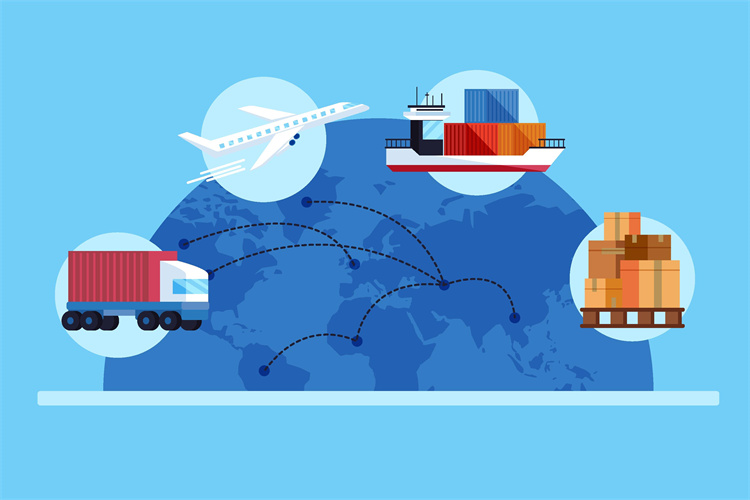5 Proven Ways to Cut Reverse Supply Chain Costs After Product Rejection

Product rejections significantly impact reverse supply chain costs, creating challenges for businesses striving to maintain profitability. Inefficient processes often lead to increased transportation expenses, labor costs, and inventory losses. For instance, handling returns without a centralized returns handling system can escalate operating costs and reduce invoice rejection rates. Additionally, waste and disposal costs from unsellable items further strain budgets.
Businesses face hurdles such as managing large volumes of returns, complying with regulations, and addressing sustainability concerns. Implementing an effective inventory management strategy and cost reduction initiatives can mitigate these cost drivers. By adopting optimization-focused strategies, companies can enhance efficiency, reduce returns costs, and improve overall supply chain costs.
Leverage Third-Party Reverse Logistics Providers

Benefits of Outsourcing Reverse Logistics
Cost Savings Through Specialized Expertise
Outsourcing reverse logistics offers businesses a strategic advantage by reducing overhead costs associated with managing returns in-house. Third-party providers streamline operations, enabling companies to transition to a variable-cost model that adapts to fluctuations in return volumes. This flexibility minimizes fixed costs and allows businesses to share infrastructure expenses with logistics partners. By leveraging economies of scale, companies can achieve cost optimization while maintaining high service levels.
Specialized providers also bring established processes and advanced technology to the table. Their expertise ensures faster returns processing, reducing the time and resources required for refurbishment or redistribution. This efficiency not only lowers costs but also enhances customer satisfaction by improving turnaround times.
Streamlining Refurbishment and Redistribution
Third-party reverse logistics providers excel in refurbishing and redistributing returned goods. Their ability to manage diverse return types ensures that products are either recycled, resold, or refurbished efficiently. This reduces logistics costs by minimizing waste and optimizing secondary distribution processes. For example, partnering with cost-effective carriers and optimizing transportation routes can significantly reduce freight payment expenses.
Companies like FedEx and UPS have demonstrated the financial benefits of outsourcing reverse logistics. Their services consolidate returns and manage the entire process, allowing businesses to focus on core competencies while reducing logistics costs.
How JUSDA Enhances Reverse Logistics Efficiency
Introduction to JUSDA's 8 Core Products
JUSDA’s comprehensive logistics solutions provide unmatched efficiency in reverse logistics. With services spanning air, land, sea, and rail transport, JUSDA optimizes freight payment processes and reduces logistics costs for industries like electronics, automotive, and FMCG. Its JusLink intelligent supply chain platform integrates IoT and big data, enabling real-time visibility and seamless collaboration across the supply chain.
By leveraging JUSDA’s specialized tools, businesses can streamline returns processing and reduce rejected invoices. The company’s focus on innovation ensures tailored solutions that meet industry-specific needs, enhancing overall cost savings and operational efficiency.

JUSDA Solutions
To provide you with professional solutions and quotations.
Reducing Secondary Distribution Costs with JUSDA
JUSDA’s expertise in refurbishment and redistribution significantly reduces secondary distribution costs. Its strategic partnerships and resource optimization allow businesses to manage returns efficiently, minimizing waste and maximizing value. For instance, JUSDA’s road transport services utilize specialized vehicles and bundled loads to lower transportation expenses.
Additionally, JUSDA’s ocean freight solutions consolidate cargo volumes, ensuring competitive pricing even during peak seasons. These strategies not only reduce logistics costs but also improve freight audit and payment processes, making JUSDA a reliable partner for reverse logistics optimization.
JUSDA's Role in Streamlining Inspections
Leveraging JusLink for Real-Time Data Analysis
JUSDA’s JusLink platform revolutionizes quality inspection processes by integrating IoT and big data. This intelligent system provides real-time visibility into returns, enabling businesses to identify and address inspection failures swiftly. JusLink’s analytics capabilities enhance decision-making, ensuring that rejected invoices are minimized and quality standards are upheld.
Enhancing Quality Checks with Advanced Tools
JUSDA employs cutting-edge tools to elevate quality checks. These tools streamline inspections by automating repetitive tasks and providing accurate assessments of returned products. By leveraging these advanced solutions, JUSDA helps businesses reduce costs, improve logistics efficiency, and maintain high-quality standards across their operations.
Establish Regional Return Hubs

Advantages of Localized Sorting Centers
Reducing Cross-Border Transportation Costs
Localized sorting centers play a pivotal role in reducing cross-border transportation costs. By strategically placing these hubs near key customer bases, businesses can minimize the need for long-haul shipments. This approach reduces the distance products travel, leading to lower fuel consumption and fewer associated expenses. Additionally, localized centers streamline the handling of returns, ensuring that products are processed closer to their origin. This reduces the reliance on international shipping routes, which often incur higher fees and longer transit times.
Companies adopting this strategy benefit from enhanced cost efficiency and improved logistics management. By focusing on regional operations, businesses can allocate resources more effectively and reduce logistics costs without compromising service quality.
Faster Turnaround Times for Returns
Regional return hubs significantly improve turnaround times for returns. These centers enable faster sorting, inspection, and processing of returned items. Proximity to customers ensures that product returns are addressed promptly, reducing delays in reverse logistics operations.
Faster processing times also enhance customer satisfaction by accelerating refunds or replacements. Businesses can reintegrate refurbished items into the supply chain more quickly, minimizing inventory losses. This efficiency not only reduces rejected invoices but also strengthens overall logistics performance.
JUSDA's Regional Return Hub Solutions
Strategic Location Planning with JUSDA
JUSDA excels in strategic location planning for regional return hubs. By leveraging its extensive network of over 155 service points worldwide, JUSDA identifies optimal locations for sorting centers. These hubs are strategically placed to align with customer demand and industry-specific needs.
JUSDA’s expertise in transportation and logistics ensures that businesses can optimize their reverse logistics processes. Its solutions reduce transportation distances and enhance operational efficiency, making it easier to manage returns effectively.
Balancing Costs and Efficiency Using JUSDA's Network
JUSDA’s robust network infrastructure balances costs and efficiency for businesses managing returns. By utilizing regional hubs, JUSDA minimizes transportation expenses while maintaining high service levels. Its advanced tools, such as JusLink, provide real-time visibility into logistics operations, enabling precise cost management and optimization.
Through tailored solutions, JUSDA helps businesses reduce logistics costs and improve the efficiency of reverse logistics processes. This approach ensures that companies can handle product returns seamlessly while maintaining profitability and customer satisfaction.
Develop Compliant Disposal Solutions
Importance of Regulatory Compliance
Avoiding Fines and Legal Issues
Non-compliance with disposal regulations can lead to severe financial and legal consequences for businesses. Companies must adhere to environmental laws to avoid penalties and lawsuits. For instance, violations under FACTA can result in fines of up to $3,500 per infraction, with additional state-imposed penalties. Non-compliance also risks damaging a company’s reputation, potentially leading to customer loss and diminished trust.
Consequence Type | Description |
|---|---|
Hefty Penalties | Businesses may incur fines up to $3,500 per violation under FACTA, with additional state penalties. |
Reputation at Stake | Non-compliance can damage a business's reputation, leading to loss of customers and trust. |
Costly Lawsuits | Legal actions can arise from failure to securely dispose of consumer information, incurring further costs. |
Aligning with Environmental Laws (e.g., California Proposition 65)
Compliance with environmental laws, such as California Proposition 65, ensures businesses meet strict standards for waste disposal and recycling. These regulations mandate the safe handling of hazardous materials and promote environmentally responsible practices. Companies must implement effective waste management systems to align with these laws, reducing their environmental footprint and avoiding legal repercussions.
Environmentally responsible disposal is crucial for products that cannot be recycled or refurbished.
Adherence to environmental regulations is necessary for waste disposal and recycling processes.
JUSDA's Sustainable Disposal Practices
Partnering with Certified Recycling Facilities
JUSDA collaborates with certified recycling facilities to ensure proper disposal of returned products. These partnerships guarantee compliance with environmental regulations while promoting sustainability. By working with trusted facilities, JUSDA helps businesses manage product returns responsibly, reducing waste and minimizing environmental impact. This approach aligns with the growing emphasis on sustainability in reverse logistics.
Implementing Eco-Friendly Disposal Methods
JUSDA employs eco-friendly disposal methods to reduce logistics costs and enhance sustainability. The company invests in advanced recycling technologies and sustainable materials to optimize waste management. These practices not only reduce pollution but also improve recycling processes, ensuring that fewer products end up in landfills. JUSDA’s commitment to environmentally responsible solutions helps businesses achieve compliance while maintaining operational efficiency.
Effective management of reverse logistics reduces environmental impact.
Responsible recycling and waste reduction minimize the environmental footprint.
Improper disposal of products can lead to pollution and increased waste in landfills.
By integrating compliant disposal solutions, businesses can reduce rejected invoices, enhance their reputation, and achieve long-term cost optimization.
Utilize Supply Chain Cargo Insurance
Benefits of Risk Transfer
Mitigating Financial Losses from Returns
Supply chain cargo insurance plays a critical role in mitigating financial losses associated with returns. Businesses often face unexpected costs due to damaged or lost goods during transit. For example, Martex Farms experienced a $50,000 loss when severe weather damaged a shipment of mangoes. Their "All Risk" cargo insurance covered the cost of the mangoes, freight charges, and disposal expenses. This demonstrates how comprehensive insurance policies can safeguard businesses from significant financial setbacks.
Cargo insurance also reduces the financial burden of rejected invoices by covering expenses related to product returns. This ensures that businesses can maintain profitability even when unforeseen disruptions occur. By transferring risk to insurers, companies can focus on optimizing their reverse logistics processes without worrying about unpredictable losses.
Enhancing Supply Chain Resilience
Cargo insurance enhances supply chain resilience by protecting against risks such as theft, rough handling, and environmental conditions. Insurers provide proactive risk management tools, including advanced analytics and real-time data, to help businesses anticipate and mitigate potential disruptions. These services strengthen the overall logistics network, ensuring a smoother flow of goods even during challenging circumstances.
Additionally, insurers offer tailored advice on risk mitigation strategies, enabling businesses to address vulnerabilities in their reverse logistics operations. This comprehensive approach not only reduces costs but also improves customer satisfaction by ensuring timely and secure returns handling.
JUSDA's Approach to Risk Management
Key Insurance Features Offered by JUSDA
JUSDA provides a range of insurance features designed to optimize risk management in reverse logistics. Its policies include coverage for theft, damage, and environmental risks, ensuring comprehensive protection for returned goods. JUSDA’s solutions also integrate real-time data analytics to enhance risk identification and expedite claims processes. This approach minimizes financial losses and improves operational efficiency.
Feature | Benefit |
|---|---|
Real-time data enables better identification of potential risks in the supply chain. | |
Improved Claims Processes | Faster incident response and expedited claims reduce financial losses for businesses. |
Tailored Coverage and Pricing | Customized policies meet specific business needs, ensuring cost-effective risk management. |
Calculating Cost-Benefit Ratios with JUSDA's Expertise
JUSDA’s expertise in risk management helps businesses calculate cost-benefit ratios effectively. By evaluating potential risks and associated costs, JUSDA ensures that companies invest in the right level of coverage. This strategic approach balances insurance premiums with the financial benefits of risk transfer, optimizing overall logistics costs.
Through its tailored solutions, JUSDA empowers businesses to enhance supply chain resilience while maintaining profitability. Its commitment to innovation and efficiency makes it a trusted partner for managing risks in reverse logistics.
Efficient reverse logistics strategies offer businesses significant long-term benefits. These include cost reduction, enhanced inventory management, and the potential for repurposing or recycling returned goods. By implementing the five proven approaches—outsourcing reverse logistics, optimizing quality inspections, establishing regional return hubs, developing compliant disposal solutions, and utilizing supply chain cargo insurance—companies can reduce rejected invoices and improve operational efficiency.
JUSDA’s innovative solutions, such as JusLink and its extensive logistics network, empower businesses to streamline processes and achieve measurable success. Metrics like customer satisfaction, inventory tracking, and data collection demonstrate the effectiveness of these strategies in reducing costs and enhancing logistics performance. Businesses should evaluate their reverse logistics processes and consider JUSDA as a trusted partner for sustainable growth and profitability.
See Also
Essential Strategies for Successful Supply Chain Optimization
Discover 5 Cutting-Edge Techniques for Supply Chain Optimization
The Definitive Guide to Reducing Logistics Costs Effectively
Navigating Supply Chain Risks: A Comprehensive Management Guide
Expert Advice for Overcoming Automotive Supply Chain Challenges
